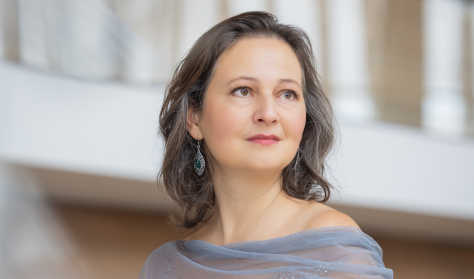The two works testify to the way in which both composers had thoughts and feelings that they could only reveal to the world in these movements. Conducting this concert by the Hungarian National Choir and Hungarian National Philharmonic Orchestra will be Csaba Somos.
A member of the circle of French composers known as “Le Six”, Poulenc was considered by his colleagues, friends and acquaintances to be an easy-going, witty and elegant artist who was not even averse to frivolity. When his friend the painter and set designer Christian Bérard died in 1949, however, he wrote his 12-movement Stabat Mater, conceived for choir and orchestra, with three of the movements sung by a soprano soloist. Verdi’s work Quattro pezzi sacri (the word pezzo actually means “piece”) was not conceived as a single interrelated cycle: it started out as four separate movements, of which the a capella Ave Maria and the likewise unaccompanied Laudi alla Vergine Maria were written in 1889 and 1886/88 respectively, while the Stabat Mater and Te Deum, which also employed an orchestra, date from 1896/97 and 1895/96. The work (minus the Ave Maria) received its world première at the Paris Opera in 1898.
Ágnes Kristófi, the soloist for the concert, was born in Nagyvárad (Oradea) in 1973 and began her studies in her home town before graduating from the Liszt Academy in Budapest. She is a member of the Hungarian National Choir. Liszt Award-winning conductor Csaba Somos has served as the choirmaster of the Hungarian National Choir since April 2016. His focus lies on both vocal and instrumental music. His main artistic goal is to find passionate interpretations whose musical power surpasses simple professionalism.
Francis Poulenc: Stabat Mater
***
Giuseppe Verdi: Quattro pezzi sacri
Ágnes Kristófi voice
Hungarian National Choir (choirmaster: Csaba Somos)
Hungarian National Philharmonic Orchestra
Conductor: Csaba Somos








